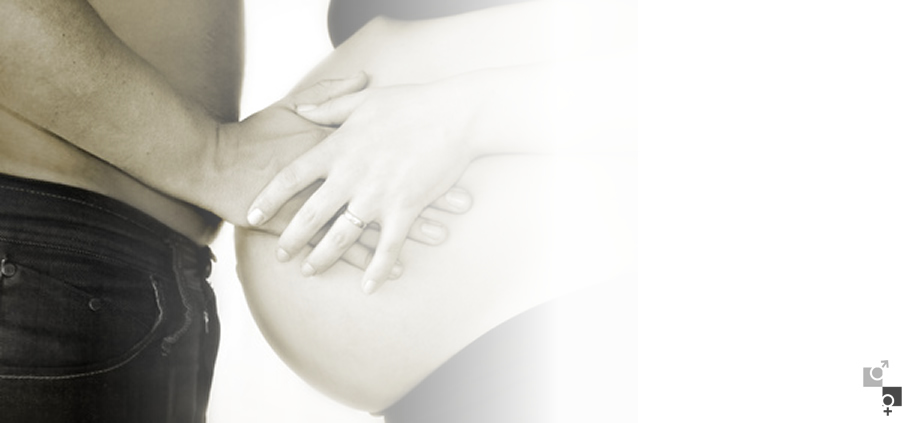Infertility
-
Infertility refers to the inability of a person to contribute to conception and giving birth to a child, and concerns both partners, since causes may derive from the man as much as from the woman. Infertile (or sub-fertile) is considered a couple who has normal contraceptive-free intercourse as frequent as 2-3 times a week with emphasis on the fertile days for a year, and has not conceived. Infertility is a symptom rather than a diagnosis and is observed almost to 15% of the couples. It is divided into Primary (when there has never been a pregnancy) and Secondary (when there has been a conception regardless of the result).
-
- >>Male Infertility (semen alteration, sperm count, motility and morphology) video video2 video3
- •Inflammations, Infections
- •Genetic Anomalies – Chromosomatic anomalies
- •Accidents in the genital organs
- •Ductal obstruction
- •Hormone Dysfunction
- •Immune factors
- •Advanced Age
- •Everyday habits and lifestyle (stress, smoking, alcohol, air pollution)
- •High Temperatures
- •Varicocele
- •Cryptorchidism
- •Testicular Torsion
- >>Female Infertility (semen alteration, sperm count, motility and morphology) video
- •Hormonal disorders (Polycystic Ovarian Syndrome, irregular ovulation, premature menopause)
- •Uterine problems
- •Endometriosis
- •Fallopian tube obstruction
- •Inflammations, Infections
- •Cervical mucus hostile to sperm
- •Genetic – Chromosomatic anomalies
- •Immune factors (antibodies hostile to the fetus in the woman’s serum)
- •Advanced Age
- •Everyday habits and lifestyle (stress, smoking, alcohol, air pollution)
-
(Men)
High Temperatures
High temperature is one of the most important enemies of male infertility because it causes reduction of the motility of the sperm.
-
Everyday habits and lifestyle
- -Air pollution: causes damages in the genetic material of the sperm, making conception difficult and increasing risk of miscarriage.
- -Anxiety, stress: men under stress produce a larger percentage of sperm with abnormal morphology.
- -Smoking: affects the genetic material of sperm, resulting to its reduced capacity to trigger the necessary fetal development.
- -Nicotine: large amounts of nicotine in the blood cause damage in the biosynthesis of testosterone, spermatogenesis and sperm maturation, as well as decrease in fertilization ability.
- -Alcohol: reduces the testosterone production in the testes.
-
Cryptorhidism
It is the condition when the testicle is not located in its regular position within the cavity of the scrotum, but in some other place of its normal descent from the kidney to the respective semi-scrotum. Anatomical, functional and hormonal disorders have been proposed at times as possible causes of the incomplete descent of the testicles. The absence of the testicle from the scrotum (the sac or pouch that contains the testes) can be easily identified during the clinical examination of the patient. The treatment is mainly surgical and the appropriate age recommended for the operation is the age of 2 years, since the early treatment of cryptorchidism is considered to be restricting the complications which ectopic testicles may present. -
Varicocele
It is the varicose dilatation of the veins of the spermatic cord which results in the formation of a soft mass above the testicle (this is the stagnation of blood around the testis and is caused by the failing or insufficient function of some of the valves along the internal spermatic vein). Varicocele is usually asymptomatic unless it is very large, in which case the patient may experience pain or burden in the testis. Varicocele usually affects people of young age and requires surgical treatment. -
Testicular Torsion
It is the contortion of the spermatic tone, the area which the nerves and veins ending to the testis go through (rotation of the testis around its axis). It is usually observed with children and adolescents of up to 18 years of age, it can, however, occur at older ages too. The symptoms are intense: pain, swelling of the testicle, as well as redness of the scrotum. Testicular torsion is a surgical emergency that needs immediate intervention. Severe implications of this condition are the loss (death) of the testicle and sterility. Immediate surgical treatment is required. -
Inflammations, Infections
Consult your Medical Care Provider. Genetic Anomalies – Chromosomatic anomalies
Consult your Medical Care Provider.-
Accidents in the genital organs
Consult your Medical Care Provider. -
Ductal obstruction
Consult your Medical Care Provider. -
Hormone Dysfunction
Consult your Medical Care Provider. -
Immune factors
Consult your Medical Care Provider. -
Advanced Age
Consult your Medical Care Provider.
-
(Γυναίκα)
Hormonal disorders (Polycystic Ovarian Syndrome, irregular ovulation, premature menopause)
Consult your Medical Care Provider. -
Uterine problems
Consult your Medical Care Provider. -
Endometriosis
Consult your Medical Care Provider. -
Fallopian tube obstruction
Consult your Medical Care Provider. -
Inflammations, Infections
Consult your Medical Care Provider. -
Cervical mucus hostile to sperm
Consult your Medical Care Provider. -
Genetic – Chromosomatic anomalies
Consult your Medical Care Provider. -
Immune factors (antibodies hostile to the fetus in the woman’s serum)
Consult your Medical Care Provider. -
Advanced Age
Consult your Medical Care Provider. -
Everyday habits and lifestyle (stress, smoking, alcohol, air pollution)
Consult your Medical Care Provider. 
-



